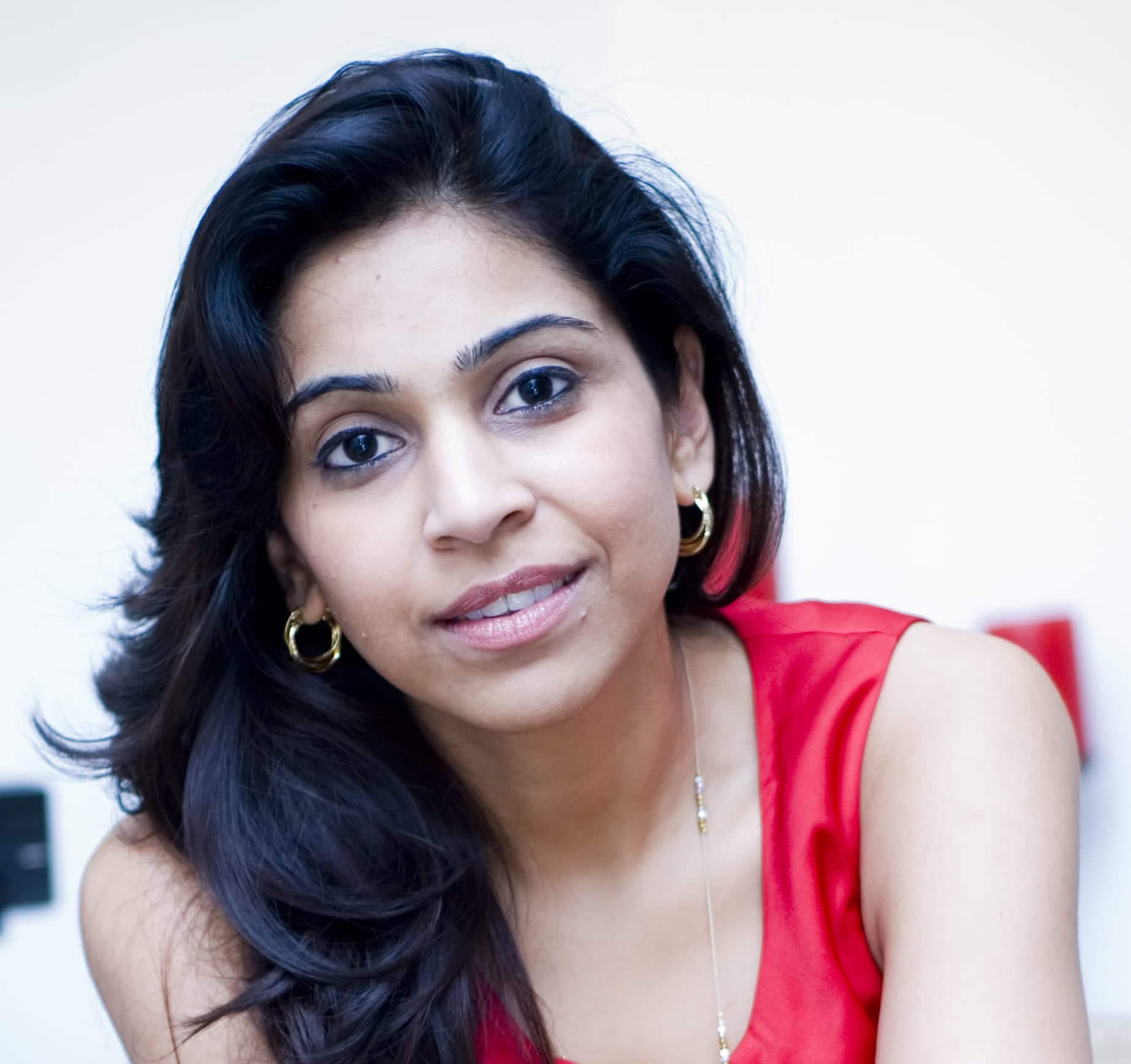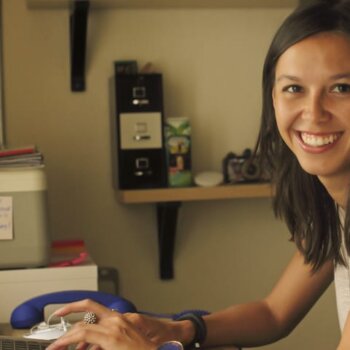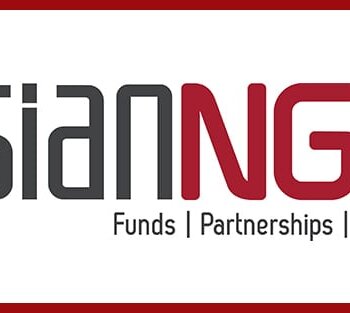(Women on Top in Tech is a series about Women Founders, CEOs, and Leaders in technology. It aims to amplify and bring to the fore diversity in leadership in technology.)
Anisha Singh is a Founding Partner of She Capital, an early stage fund, that invests in women-led businesses with a potential for high growth. She is the Founder and former CEO of mydala.com which is the leading local services marketing platform in India and UAE. Anisha was ranked amongst the Top 7 women CEOs located outside the US by Crunchbase in 2018. Prior to mydala, Anisha founded and ran a digital technology content company called Kinis Software Solutions. Anisha started her career working with the Clinton Administration on an initiative called Springboard which helped women entrepreneurs raise funds.
Anisha won The Most Enterprising Brands & Leaders of Asia Award in 2018 and has also been recognized under the Business category in Women in Asia – 50 Most Influential 2018. Anisha is the President of the jury of the Cartier Women Initiative Awards for the Asia-Oceana region. She was also a judge on a start up reality show on MTV, similar to Shark Tank, called Dropout Pvt. Ltd. Anisha has an MA and MBA from American University in Washington DC.
What makes you do what you do?
Growing up I was the most un-ambitious person that you could have met, unlike peers, I neither had any clue nor the inclination to do anything remotely interesting. Friends had bet on me getting married right after college. It just so happened that by some weird odd stroke of luck I ended up in grad school in Washington DC and happened to get an internship working for a CEO named Julie Holdren. For me, she might as well have walked on water. I suddenly had a role model, that I looked up to and wanted to be like.
Role models and mentors can have a riveting effect on one’s perspective in life. You can go from not knowing anything to suddenly discovering your calling. I am fortunate that I have had the mentors and role models who inspired and helped me to achieve what I have today.
I now actively mentor entrepreneurs as a way of paying it forward. I do what I do because I looked up to someone and wanted to be her. My goal is to now help build the entrepreneurship ecosystem for women so that when my daughters grow up they have several role models to look up to.
How did you rise in the industry you are in?
Not quitting is a superpower that will make you great at whatever you do.
When I started Mydala, we had 52 competitors, 7 out of these companies had larger funds backing them up. At that point, we had three terms sheets when we went with an investor who backed out on us. Two days before the money transfer was due, they backed off.
We had grown the team size according to their design. We had already invested a lot of time in them. Technically, we should have shut down then because I just had my first baby and most of our savings were vested in Mydala. But life takes you through moments where you have to make some tough calls and you have to decide whether you are going forward; or call it quits. In our heads we did not have a choice, we just had to keep ploughing forward.
I never saw it as “not quitting”, as there was no other option. It was just ideal for my co-founders and I that we kept moving forward. So it made us innovate and it made us look at mobile when nobody was looking at it. Six years later, we are the leaders in this space because we went on mobile before everybody else did. We took the punches but we continued to fight back.
Why did you take on this particular role in this startup, especially since it was a stretch or challenge for you?
You know, I did not even think of it that way. And now people talk to me, they are like, ‘Why did you do this?’ At that point, I did not think. In my head, I saw a clear market need and an opportunity and went after it. I did not think it would be a challenge or a stretch which is just as well because I was pregnant when I started Mydala and so the joke was that I was giving birth to two babies in one go.
There is a saying which a friend said — which may sound offensive, but I think it is the truth: Entrepreneurs have to be too dumb to die. If you are dumb (and ‘dumb’ not in a derogatory way but ‘dumb’ to the point where you just do not see anything), you are like a horse with your blinders on and you have one goal and that is it. Focus on your goal and work at it. I did not overthink whether Mydala would be big… I just worked at it and knew that we had a goal and we needed to achieve it.
Do you have a mentor or mentors that you look up to in your industry, and how did you look for one and how did that happen?
I’ve been fortunate enough to have several mentors, each of them guiding me in different aspects. At SheCapital, I have really strong women as well as men who have been guiding me, who have been champions of the fund, SheCapital, and our investment thesis to back high-growth women-led companies. Most of my mentors have been people I have known for years. They have been kind and generous with their time every time I have reached out for advice.
I meet entrepreneurs that are just starting out, they put so much pressure on themselves about getting the right mentors. Everyone wants one because it is what they ha ve read about. Mentors do not come about that way. It is not like you can just walk up to Bill Gates and say, ‘Will you be my mentor?’ It does not work like that. Mentors are friends/ colleagues/ teachers that you lean on at different phases of your life, and they will forever evolve.
I think this whole thing about mentor needs to change. People need to understand you can lean on the woman next to you or the man next to you and ask for help and ask questions and slowly it evolves. People can introduce me to someone else and someone will introduce me to someone else, and that is how mentor/mentee relationships get built over time and you find value in each meeting.
Why did you start SheCapital?
I used to speak globally on women entrepreneurship and how we needed to build the ecosystem. At some point, it just felt like hollow talk looking at the global statistics. In 2017, two percent of the entire funding pie went to women-led ventures. Studies show that the only way to change that is if there are more women on this side of the table. It just felt like it was the time to do this.
I knew it would be tough but I also knew it was the right time to do this
So, women are seen to be a larger risk than male founders?
You know studies have proven the contrary is true. That women entrepreneurs return more money for every dollar invested. However you are right, it does seem to be the general notion. I think it’s because people wondered if women could manage a family and their business, fortunately, there are a new breed of women founders challenging this notion. The CEO of “Rent the Runway” being one of them, she raised her last round at a billion dollar valuation while being pregnant. I think once we have more of these role models, the perception will change.
How did you go about raising funding and scaling?
You do not take rejection to heart. We did hundreds of investor meetings. It is really about showing up right and taking rejection and saying, ‘Okay, it does not work for this one, it will work for the next and move on and do it. I started raising for Mydala when I was six months pregnant, I was the first of my kind in India in 2009. There were less than a handful of women in the Internet space and then the woman founder (me) showed up extremely pregnant! Needless to say, I heard a lot of opinions.
One VC pulled my co-founders aside and told them to ditch the heavy weight… as in me. I had VCs who at a later date have sat with me and said, ‘We wish we had invested in Mydala’ and if someone had asked, ‘Why didn’t you?’ They would say, ‘Anisha was too pregnant’.
I did not know there was a term as “too pregnant”. You just keep going and you cannot be disheartened about it and you will find the right set of investors who believe in your vision, you and your company.
One thing about funding that is very crucial which a lot of entrepreneurs seem to forget is that funding is just a way to get somewhere, but your business has to be solid. Too many people come to me and they are not in the business of business; they are in the business of raising funding which to me is just bizarre because if that is the only thing you are looking at to sustain and you have no foresight or no goal into growth — then there is a problem.
Now as a leader, how do you spot, develop, keep and grow your talent?
When you are growing from 10, it is easy to maintain and have the same culture as when you are 30. But the more you grow, can you have the same at 150 or 400? Can you maintain the same culture? Do people have the same beliefs as you do? And it has been hard. I tell you there is no right answer and everybody makes mistakes and we have made some serious mistakes in our recruiting.
We have gone from saying that we will recruit from only the top institutions to realizing that it’s the people and stamp that they come with that need to fit into our culture. All those policies now have been scraped and the only thing we look at is not the institution they graduated from but the hunger they come with and if they seem like they would be a good fit at Mydala.
You can tell when another person has that passion, the hunger to try and succeed, and who believes in the same goals. All of Mydala’s founding team pretty much stayed together because we have believed we were building something meaningful. We came out of sharing office space with the dental clinic, pitching to them that Mydala would be great while I was 6 months pregnant. You would have to be seriously crazy to believe in the idea and join the team at that time… a time when startups were not trendy. Even people who have left us and moved on to something else are people who are still so attached to Mydala. We are proud of the culture that has been built.
Do you consciously or unconsciously support diversity and why?
After SheCapital the answer is fairly easy. In terms of whether it is conscious or unconscious, I am now fairly vocal about it which was not always the case.
Seven years ago, I did not believe that we needed to be loud and speak out about this. I was one of those entrepreneurs who said, ‘Why are we making such a big deal about being women?’ And when somebody invited me to a panel, I want to be known as a successful entrepreneur, not as a successful woman entrepreneur. But the fact of the matter is if there are not enough of us — I changed my life course because I saw phenomenal women and I saw great role models and mentors. If they are not enough of us out there, that is not going to happen. All of us need to consciously make an effort no matter what position we are at, to either be supportive or just be more vocal about the fact that there is disparity right now and we need to be more inclusive.
Are you for or against quotas?
Here is the thing: There are a lot of percentages floating around the world in terms of how much funding has gone to women and the fact that we are 118 years behind men, in terms of the pay gap. The only ratios that I care about… is changing those statistics to whatever little way I can. I do not believe quotas are the solution though. I feel there needs to be a conscious effort to close the gap, but not quotas.
What does it take to be a great leader in your industry?
Being an entrepreneur requires perseverance and a lot of hard work plus, it should be something you truly love doing. Do not do a startup because it is trendy to do it, but because you believe in the idea.
A clear vision and the ability to be flexible in a fast-changing environment is also important.
Advice for others and please share here what you are up to next and where you want to focus people’s attention to?
Do not quit. Do not overthink and sometimes just showing up is all it takes. Sounds easy to do but for an entrepreneur on a dark rough day, that is a big deal to pick up the pieces and show up because when you show up, you do not know what is going to happen. There are meetings that have just been so brilliant and they have been hard to get to. If you show up, mostly magic happens.
Who are the next top three women in India tech who you see that are rising that I need to know, or anyone needs to know?
There are many famous women in technology in India. What I love is that it is becoming a supportive ecosystem where each of us is cheering for the other. I think Falguni Nayyar is building a phenomenal beauty business. Malini Aggarwal of Miss Malini has made content cool. Among the many other contemporaries whom I admire include Radhika Aggarwal of Shopclues, Kanika Tekriwal of Jet Set Go, Sabina Chopra of Yatra.
I think the reason for me to be doing the fund is to call out the ones that have not been called out already. I think there are really cool women who I am seeing come up, which I think are phenomenal. There is a woman named Swati Pandey who has got a great agri-tech company. There is also Gauri Singhal who is the most sorted understated entrepreneur who gets consumer brands and who is building a phenomenal feminine hygiene company.
I am constantly looking to hear and meet up with other phenomenal women entrepreneurs so that I can learn and talk about their stories.
If you’d like to get in touch with Anisha Singh, please feel free to reach out to her on [email protected]





























